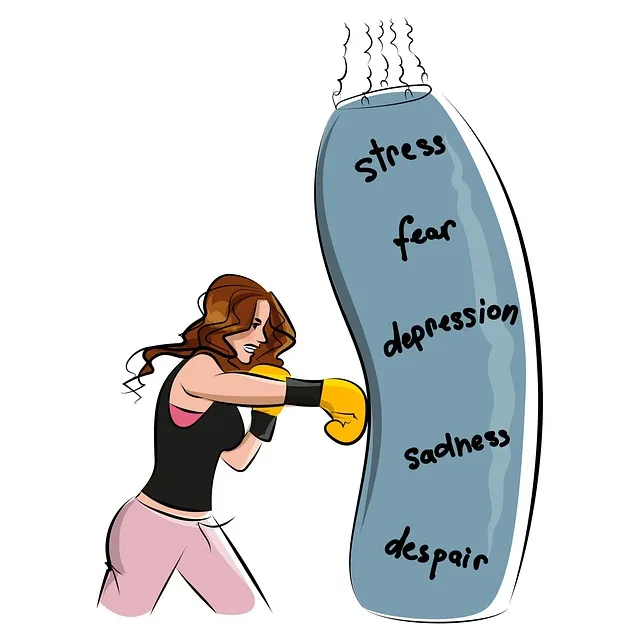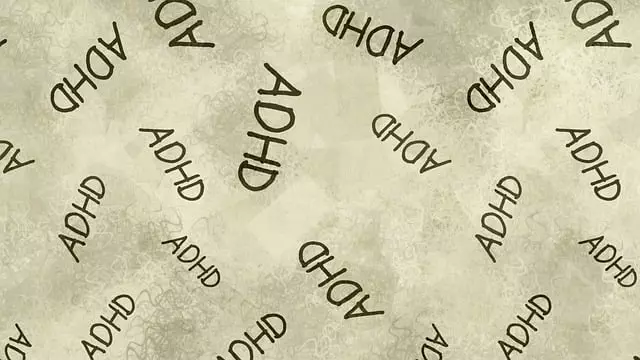Golden Kaiser mental health programs holistically address substance abuse by targeting underlying psychological conditions like depression, anxiety, and trauma through evidence-based approaches such as CBT, social skills training, and stress reduction methods. These tailored interventions empower individuals with healthy coping mechanisms, build resilience, reduce risk factors, and promote long-term recovery while considering cultural sensitivity and crisis intervention. The programs also foster a strong support network through community-building, self-care practices, and emotional intelligence, enabling individuals to maintain mental wellness independently.
Substance abuse poses significant risks to individuals and communities, but proactive strategies can mitigate these dangers. This article explores comprehensive risk reduction techniques, focusing on the pivotal role of Golden Kaiser mental health programs in addressing substance abuse. We delve into understanding the complexities of this issue, identifying risk factors, and implementing evidence-based solutions. By examining individual and environmental contributors, we uncover the power of supportive community networks for long-term recovery. Embrace these strategies to navigate the path towards a healthier, safer future.
- Understanding Substance Abuse and Its Risks
- The Role of Golden Kaiser Mental Health Programs in Risk Reduction
- Identifying Individual and Environmental Factors Contributing to Substance Abuse
- Evidence-Based Strategies for Preventing Relapse and Promoting Recovery
- Building a Supportive Community Network for Long-Term Success
Understanding Substance Abuse and Its Risks

Substance abuse is a complex issue that goes beyond mere addiction; it’s a profound deviation from an individual’s ability to manage their emotional well-being and maintain healthy relationships. It often stems from underlying mental health conditions, such as depression, anxiety, or trauma, where individuals use substances as a coping mechanism. This can lead to a vicious cycle, exacerbating both the substance abuse and the initial mental health disorder.
The risks associated with substance abuse are multifaceted. They include physical health complications, cognitive impairments, social isolation, and legal repercussions. Golden Kaiser mental health programs acknowledge that addressing these issues requires a holistic approach. By integrating Emotional Well-being Promotion Techniques and Empathy Building Strategies, these programs aim to help individuals develop healthy coping mechanisms and enhance their Stress Management skills. This not only reduces the risks of substance abuse but also fosters a more balanced and fulfilling life.
The Role of Golden Kaiser Mental Health Programs in Risk Reduction

Golden Kaiser mental health programs play a pivotal role in reducing risks associated with substance abuse by holistically addressing underlying psychological issues. These comprehensive programs offer specialized services tailored to individual needs, focusing on both treatment and prevention. By integrating evidence-based practices, such as Social Skills Training and Stress Reduction Methods, participants gain valuable tools to enhance their mental wellness and build resilience against substance misuse.
The mental health experts at Golden Kaiser facilitate a supportive environment where individuals can explore and develop healthier coping mechanisms. This tailored approach not only treats existing substance abuse issues but also equips individuals with the skills to navigate life’s challenges without relying on harmful substances. By fostering mental wellness, these programs empower participants to make informed choices, significantly lowering their risk of future substance abuse.
Identifying Individual and Environmental Factors Contributing to Substance Abuse

Substance abuse often stems from a complex interplay of individual and environmental factors. Recognizing these influences is crucial in developing effective prevention strategies. For many individuals, underlying mental health conditions, such as depression, play a significant role in their vulnerability to substance misuse. Addressing these co-occurring disorders through evidence-based programs like those offered by Golden Kaiser Mental Health can be transformative. Additionally, social factors and environmental exposure to substances can greatly impact an individual’s choices. Social skills training and trauma support services are essential tools in building resilience against substance abuse by enhancing coping mechanisms and fostering healthier relationships.
Understanding these contributing factors allows for tailored interventions. By combining mental health support with targeted environmental strategies, communities and individuals can work towards prevention and early intervention, ultimately reducing the prevalence of substance abuse. This multi-faceted approach ensures that people receive comprehensive care, addressing both personal challenges and external influences that may contribute to unhealthy behaviors.
Evidence-Based Strategies for Preventing Relapse and Promoting Recovery

Substance abuse relapse is a complex issue, but evidence-based strategies can significantly strengthen an individual’s path to recovery. Golden Kaiser mental health programs emphasize holistic approaches that target both the mind and emotions. These programs often incorporate Cognitive Behavioral Therapy (CBT), a highly effective method for identifying and changing negative thought patterns and behaviors associated with substance abuse. By teaching individuals coping skills, stress management techniques, and emotional regulation strategies, CBT equips them to handle triggers and cravings effectively.
Additionally, cultural sensitivity in mental healthcare practice is an integral part of these programs. Recognizing the unique cultural backgrounds and experiences of clients allows for tailored interventions. Crisis intervention guidance is also provided, ensuring that individuals have access to immediate support during challenging times. This comprehensive approach not only prevents relapse but fosters a deeper understanding of personal triggers, promoting long-term recovery and improved overall well-being.
Building a Supportive Community Network for Long-Term Success

Building a robust support network is an integral part of any substance abuse recovery journey, and Golden Kaiser mental health programs recognize this. A supportive community provides individuals with a sense of belonging and accountability, crucial elements for long-term success. This network can be cultivated through various means, such as joining support groups or communities that share similar goals and challenges. These groups offer a safe space to openly discuss experiences, gain valuable insights from peers, and receive encouragement.
Incorporating self-care practices, emotional intelligence, and mental wellness journaling exercises into daily routines can further strengthen this network. By prioritizing personal well-being through activities like meditation, therapy sessions, or engaging in creative outlets, individuals empower themselves to navigate triggers and challenges effectively. Emotional intelligence allows for a deeper understanding of one’s emotions and those of others, fostering healthier relationships within the support network. This holistic approach ensures that the community not only offers external support but also empowers members with the tools to maintain their mental wellness journey independently.
Substance abuse poses significant risks, but with comprehensive strategies, these challenges can be mitigated. By understanding the complexities of substance abuse and its underlying causes, we can effectively target both individual and environmental factors through evidence-based practices. The integration of Golden Kaiser mental health programs offers a promising approach to risk reduction, emphasizing the importance of holistic care. Building supportive community networks further reinforces long-term recovery, ensuring individuals have the resources they need to maintain sobriety and lead fulfilling lives.






